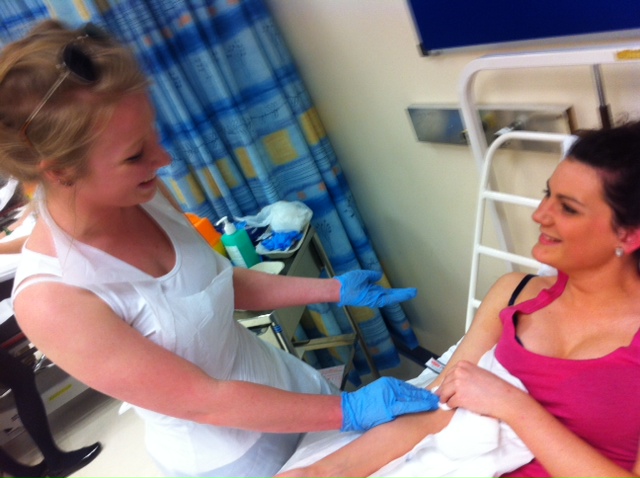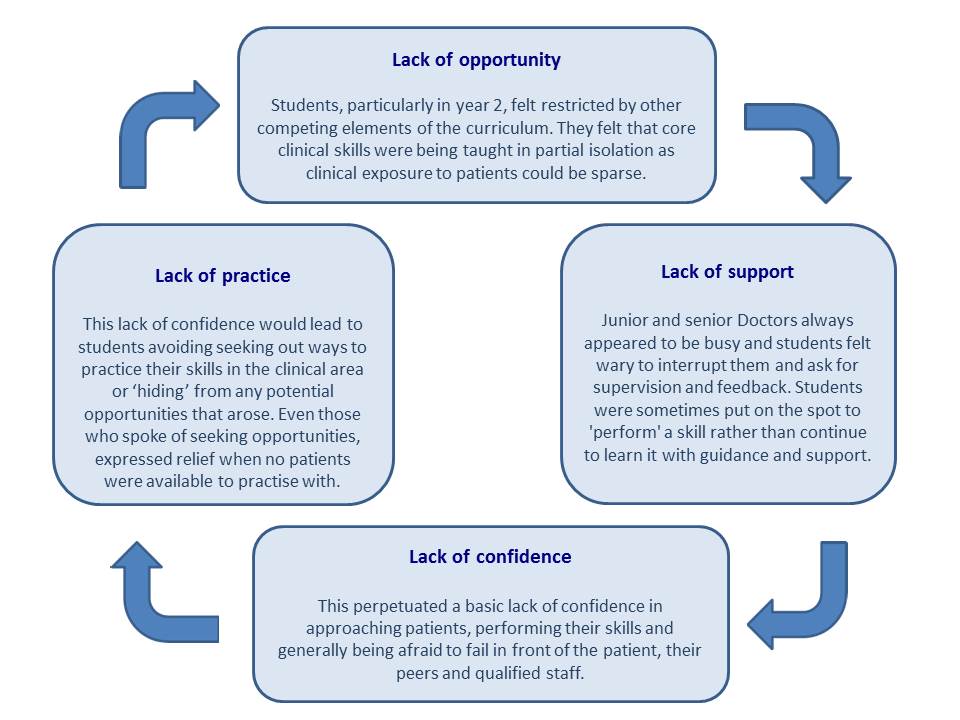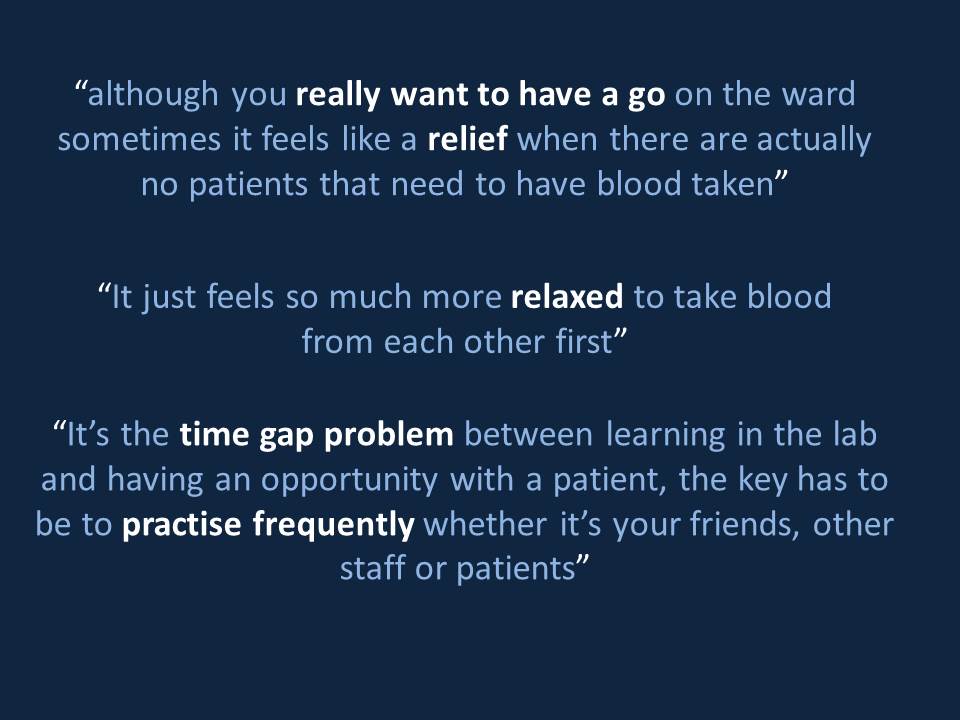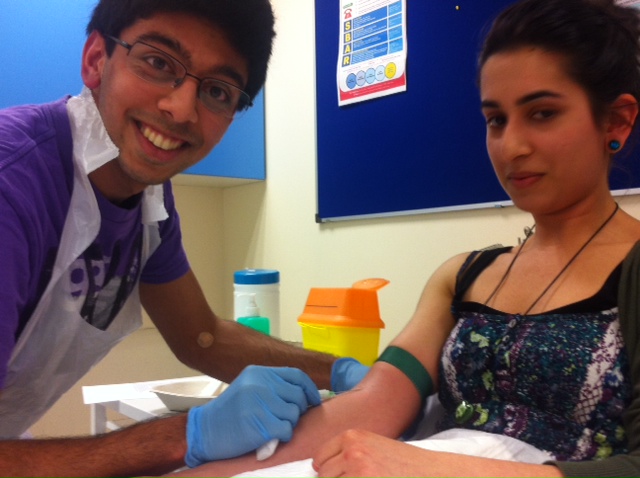
|
Authors | Institution |
|
Lisa MacInnes Lorraine Close Val McDowall Barbara Findlay Janet Skinner |
University of Edinburgh |
 |
|
||||||
| Is there still a place for old school skills teaching? |
Undergraduate Medical students at The University of Edinburgh are taught core practical skills within the first 2 - 3 years of the programme. Their first exposure to skills is within the clinical skills lab, where students initially practise on simulated equipment. Following this experience students are then encouraged to consolidate their skills with patients, during their attachments in clinical areas. Formal University evaluation and informal face to face discussion has revealed that students often struggle to consolidate their skills until their final year, for a number of reasons.
Students in years 2, 3 and 4 were asked to complete a questionnaire which explored their experiences and perceived barriers to gaining experience in venepuncture and cannulation skills within the clinical area. Unstructured interviews were then conducted with a cohort of year 4 students to explore the questionnaire findings further. The aim of the practical aspect of the project was to increase student confidence by providing experience and feedback. It was hoped that barriers might be broken down by learning from each other.
The clinical skills teaching team proposed that a pilot should run inviting students who had attended their formal clinical skills teaching session, to sign up to voluntary supervised sessions within the clinical skills lab. They acted as surrogate patients for the skill of venepuncture to be practised. Sign up sheets were posted on line and sessions were full to capacity running, from March to June 2013.
Whilst the skills lab continues to provide an environment for teaching and informal practice of clinical skills on simulated equipment, students remain eager to take their learning and experience one step further and return to old school practices, acting as surrogate patients for each other. The sessions have also encouraged regular practice of their skills, helping minimise the time gap between teaching sessions and actual experience.
Feedback from the pilot groups requested that the clinical skills 'offered' through this project be expanded to include peripheral venous cannulation. We responded and introduced these sessions and the sign up is again full to capacity.
Longitudinal follow up of students who attend sessions is currently underway. The aim is to discover if the stepping stone that the session currently provides, offers enough support for students to overcome some of the perceived barriers to clinical skills practice within the clinical area.
 Send Email
Send Email



